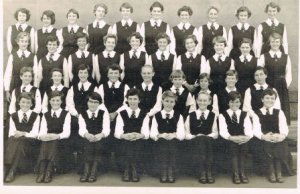Ed Mashburn
Member
Facts- there are none-
Tribe Fan and others- good evening to all-
I have no "facts" to support what I say. Statistics, especially education stats, can be used to "prove" anything or any point of contention.
Instead, I have nearly 40 years of time spent standing in front of public school classrooms in a wide range of settings- tiny little dirt-poor rural schools, fairly wealthy middle class schools- even college classes.
I have learned that US public school classes very accurately reflect the communities that the kids come from. If education is valued at home, the kids are pressured to achieve at school. If education is not valued at home, the kids may or may not achieve at school.
I have been impressed by what my foreign exchange student have told me on a number of occasions. If I can summarize:
My foreign students from Sweden, Germany, Japan- have told me the biggest difference between US schools and their schools- In their schools, the teachers actually do very little- the kids do everything. In US schools, the teachers do everything and the kids do almost nothing.
I found that information to be very interesting- good evening to all- Ed
I still didn't see any sources, but I believe paying teachers well is a good thing.
Tribe Fan and others- good evening to all-
I have no "facts" to support what I say. Statistics, especially education stats, can be used to "prove" anything or any point of contention.
Instead, I have nearly 40 years of time spent standing in front of public school classrooms in a wide range of settings- tiny little dirt-poor rural schools, fairly wealthy middle class schools- even college classes.
I have learned that US public school classes very accurately reflect the communities that the kids come from. If education is valued at home, the kids are pressured to achieve at school. If education is not valued at home, the kids may or may not achieve at school.
I have been impressed by what my foreign exchange student have told me on a number of occasions. If I can summarize:
My foreign students from Sweden, Germany, Japan- have told me the biggest difference between US schools and their schools- In their schools, the teachers actually do very little- the kids do everything. In US schools, the teachers do everything and the kids do almost nothing.
I found that information to be very interesting- good evening to all- Ed


